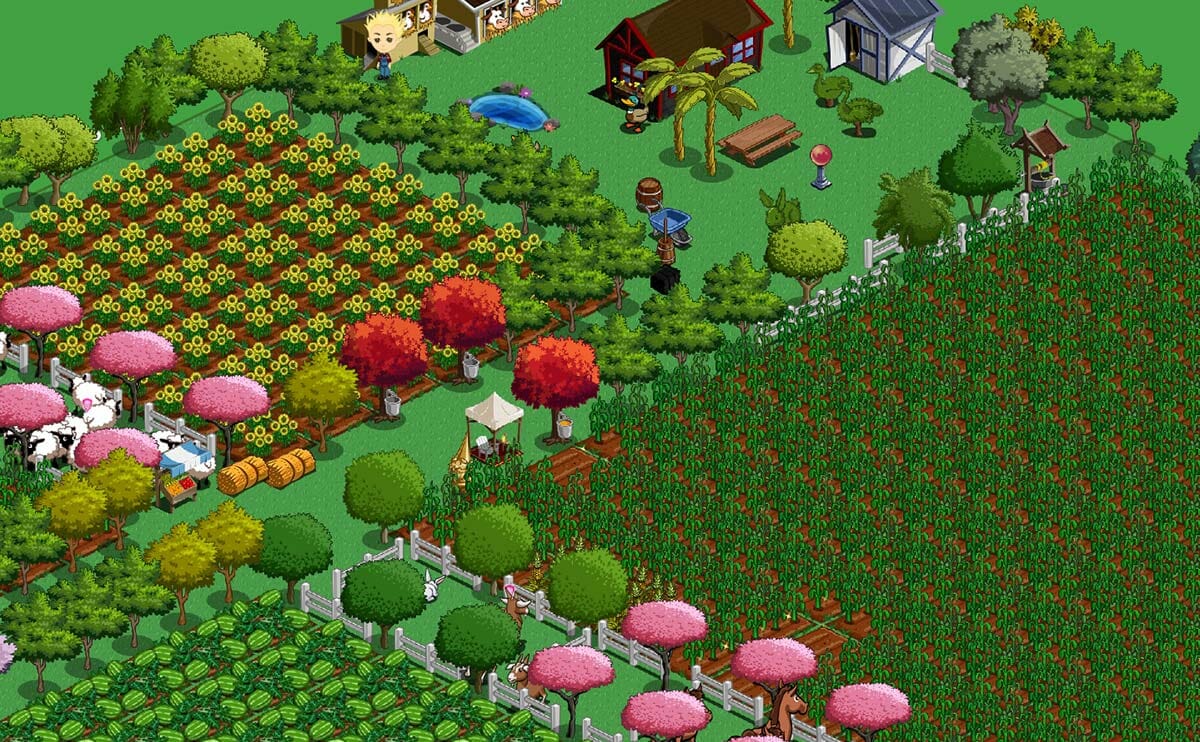Just a few years ago, the idea that people would spend their free time running virtual farms would have seemed ludicrous. Then FarmVille happened.

To many, it still does. But the runaway success of Zynga‘s FarmVille, released in 2009, has made the unlikely inevitable.
According to experts, FarmVille was a game-changer (sorry): hundreds of millions of people took to Facebook to grow virtual crops.
FarmVille launched casual gaming into the forefront, thanks to simple mechanics and deep integration into Facebook’s social network. (Thus all those annoying requests to help plow someone’s field.) It also helped spur a boom in games with a farming mechanics front and center. Unlike, say, tower defense games (think Atari’s Rampart, where you are fending off attacking forces), empire building (Settlers of Catan) or role-playing (World of Warcraft), farm mechanics depends on patience – you have to get something, watch it grow and then harvest at the right time. “In the old days, farming mechanics was sort of an aside,” says Jesse Schell, founder of Schell Games, a company that makes a variety of online entertainment products.
Now, he says, all kinds of games that don’t overtly reference farming use that mechanic – from FrontierVille, to CaféWorld and beyond. It’s a powerful paradigm even when the action has nothing to do with fields or vegetables, although, game designers definitely see the fields and vegetables as infinitely more marketable (see: Farmerama, Farming Simulator, etc.) in a post-FarmVille world.
And then there are the virtual games that are not casual at all. In 2007, European gaming company Giants Software started Farming Simulator, a game that attempts to mimic life on the farm as much as possible. Real conditions – and real tractor models – are deployed for those interested in trying a hand at the farming without real-world acreage. It’s a world away from FarmVille. “They have completely different audiences,” says Thomas Frey, art director at Giants Software, in an email, “Games like FarmVille are not really about farming. They could have a different theme and still get the same audience they have at the moment, which is the casual player that wants only a quick bit of fun in between office work. The same players will find our game too complicated and slowly paced.”
“Our own audience on the other hand is very invested in the game and farming as a profession. They want to play a real farmer and play as realistically as possible.”
[mf_video type=”youtube” id=”d11W1CqQFFc”]
There is a sizeable crowd for real, virtual farming: so far, over three million games have been sold and Farming Simulator is still in the top 10 charts for PC Games in Europe.
While the bosses at Zynga believe the future is in casino games, not farming, FarmVille seems unlikely to disappear. Companies from McDonalds to Cascade Organics have developed tie-ins within the game and the sequel FarmVille 2 brings in a half-million dollars a day. As Schell notes, “The notion of taking care of animals and crops is rewarding on a primal level.”
Even if it’s just on our laptop screen, we still love to watch something grow.